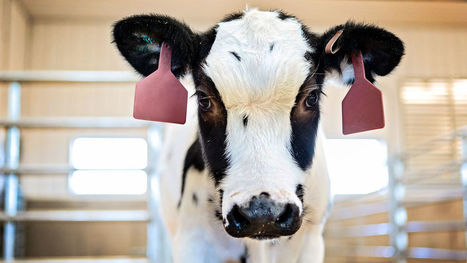Company is using genetically modified cows to produce immune proteins that neutralize the pandemic coronavirus. The latest recruits in the fight against COVID-19 are munching hay in a South Dakota barn. A biotech company has coaxed genetically modified cows to pump out human antibodies that subdue SARS-CoV-2, the pathogen causing the deadly disease, and it plans to start clinical trials of them this summer. “This is promising,” says Amesh Adalja, an infectious disease physician at the Johns Hopkins University Center for Health Security. “We want to have as many countermeasures as we can."
To manufacture antibodies for treating or preventing diseases, companies typically turn to sources such as cultured cells or tobacco plants. But almost 20 years ago, researchers began to develop the approach now pursued by SAb Biotherapeutics of Sioux Falls, South Dakota, to produce antibodies on the hoof. The company genetically alters dairy cows so that certain immune cells carry the DNA that allows people to make antibodies. That upgrade enables the animals to manufacture large quantities of human antibodies against a pathogen protein injected into them, such as the “spike” surface protein of the new coronavirus. “Essentially, the cows are used as a giant bioreactor,” says viral immunologist William Klimstra of the University of Pittsburgh, who has been analyzing the bovinemade antibodies’ potency against SARS-CoV-2. Cows make good antibody factories, and not just because they have more blood than smaller animals engineered to synthesize human versions of the proteins. Their blood can also contain twice as many antibodies per milliliter as human blood, says Eddie Sullivan, SAb Biotherapeutics’s president and CEO.
The animals may provide another advantage. Most companies trying to produce antibodies to combat COVID-19 have pinned their hopes on mass-producing identical copies of a single version, a so-called monoclonal antibody that homes in on and attaches tightly to a particular section of a virus. Instead of making just one antibody variety, the cows fashion polyclonal antibodies, a range of the molecules that recognize several parts of the virus. “That’s the natural way that our bodies fight disease,” Sullivan says. This diversity may make the cow’s proteins more powerful than monoclonal antibodies, he says, and they may remain effective even if a virus mutates...
Via Juan Lama



 Your new post is loading...
Your new post is loading...







